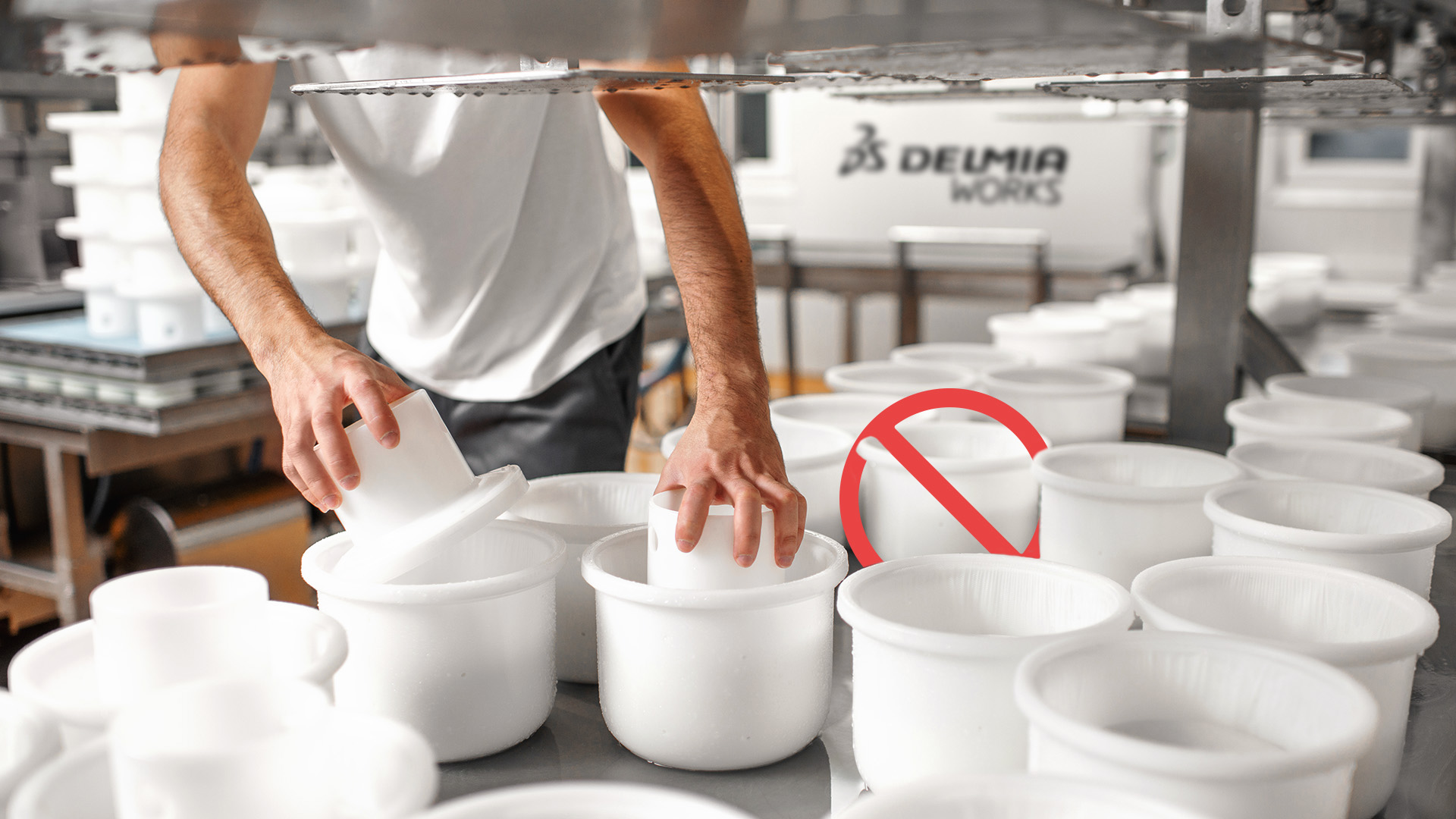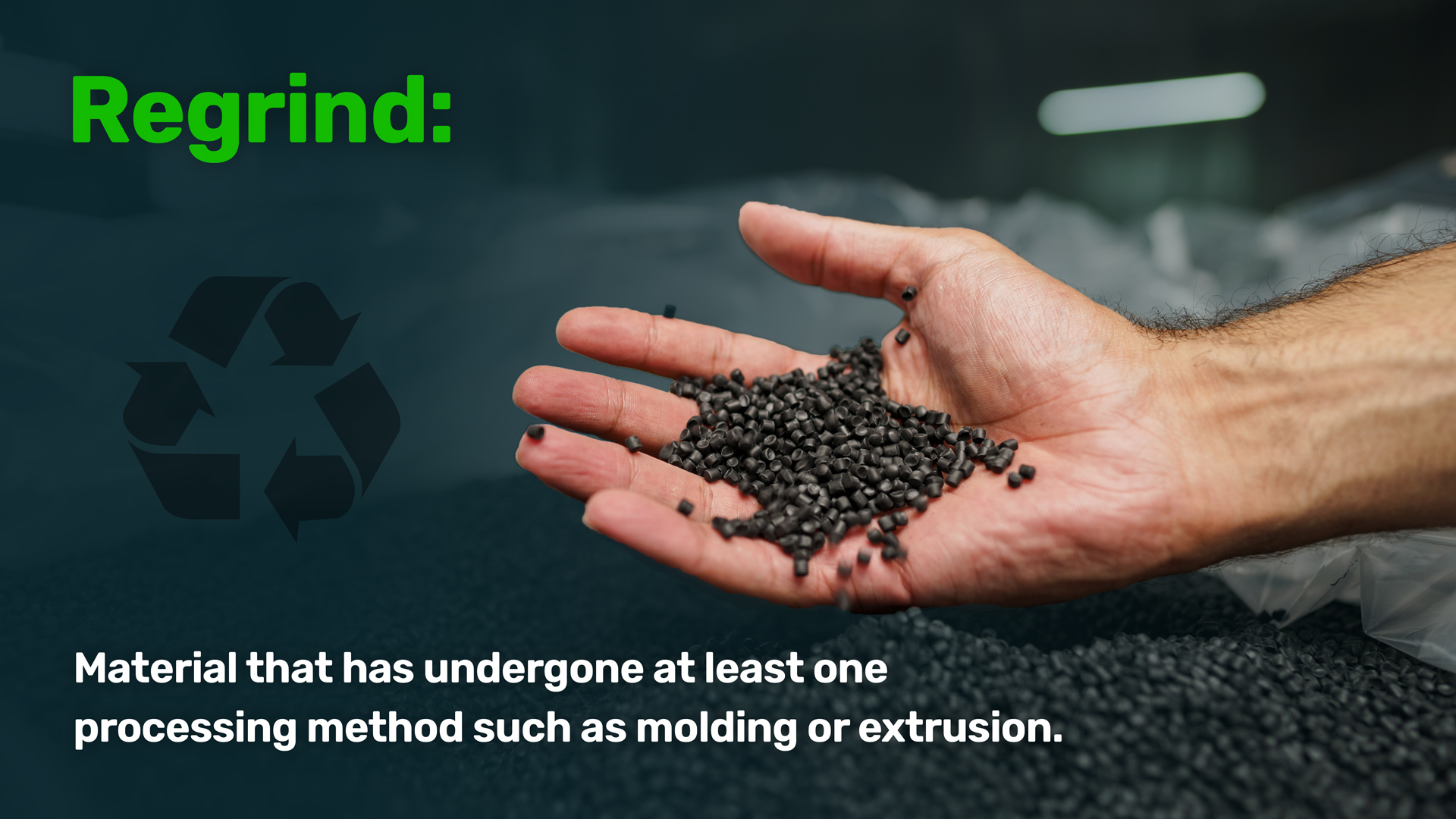
Reducing scrap is an easy way to increase your profit margins, and that’s why it’s one of the biggest considerations when it comes to the plastics manufacturing process.
One of the most fundamental aspects of running an effective manufacturing line is making sure you produce as little scrap as possible.
Whether scrap materials are reused or discarded, they have a big impact on your bottom line.
And the best way to make sure they’re having a positive impact on your bottom line, is by investing in the right manufacturing software.
As our Solutions Architect, Thomas Grigg, says, “without effective manufacturing software, you can’t manage scrap efficiently”
In this post we’ll dive into what scrap is, what can you do with it and what DELMIAWorks can do to reduce scrap and increase your profit margins.
What is scrap in plastics manufacturing?
Quite simply, ‘scrap’ can be defined as any material that’s used in the manufacturing process that doesn’t go into a final product.
Scrap can occur in a number of forms:
- Runners and Sprues
This relates to the scrap plastic that remains in the channels that the molten plastic passes through in order to enter the mould - Defects
These are components that are produced but due to some issue or manufacturing fault, aren’t fit for purpose and don’t end up being used in a finished product - Overruns
These are components that are produced and are surplus to requirements, for example, more have been manufactured than are required by the customer
Manufacturers will generally have a rough idea of how much scrap they expect to be produced on each job.
This is generally a low percentage and could be around 5 or 10%.
They can then set an allowance for this when costing up each individual job.
However, if you’re able to reduce that 5 or 10% on every job you complete, it could have a huge impact on your overall profit margins.

What can you do with scrap?
When you’re faced with scrap, there are a few options available to you, which as manufacturers you’ll be more than familiar with already.
Discard
The most obvious solution is to discard the scrap material.
Whether that be recycled elsewhere, destroyed or added to one of the ever growing landfill sites that exist.
Regrind / Re-use
Regrind is the process of adding plastic components into the virgin material (plastic pellets) to be molten back down.
This is an effective way for manufacturers to recycle scrap materials, however it does have a downfall.
It’s only possible to use a certain percentage of regrind, usually around 15-20% at a maximum.
The cosmetic properties of the plastic are altered the first time it is melted down and set in the mould.
As a result, it could have an undesired outcome if using a large quantity of regrind in the production of a new component.
The most effective manufacturing line will make the most of the virgin material available, and therefore constantly adding regrind into the mix will reduce the effectiveness.
And that’s exactly why you want to know how to reduce scrap.
Learn from it and reduce it
The best thing you can do with scrap is learn from it and then reduce it.
And in order to learn from it, you have to have the right manufacturing software in place to help you understand where the scrap is occurring.

Once you learn from it, you can use this information to make alterations or improvements to your manufacturing line to reduce scrap and increase your profit margins.
‘What’s the right manufacturing software to help you reduce scrap?’ I hear you ask.
Well, that would be DELMIAWorks, and here’s why…
How can DELMIAWorks help you reduce scrap in plastics manufacturing?
Real-time monitoring
DELMIAWorks gives you access to real-time production and process monitoring.
Through it’s Manufacturing Execution System (MES) and use of Bill of Materials (BOMs) it helps you get a better understanding of what is happening and why.
Real-time monitoring can be added to your machinery to measure scrap, machine cycle time, barrel and cushion pressures and positions.
You can then set parameters around these processes and if any work centre violates one of these parameters, it flags it up to the machinery operators who can then make adjustments to the process in real-time.
This allows you to make in-the-moment changes that have an immediate effect on the productivity and profitability of your manufacturing operation.
See how Plastech got their scrap levels to less than 4% using production and process monitoring in DELMIAWorks.
Reason Codes
Generating and assigning ‘reason codes’ allows the system to flag up every time a specific event occurs.
This allows you to dig down into when and why it is happening.
You can then report on these, both in real-time or over longer periods, to analyse your manufacturing process and work out what adjustments you can make to reduce the amount of scrap being produced at these specific instances.
Effective maintenance schedules and alerts
Ensuring your machinery is always running at maximum efficiency, as any inefficiencies can result in defective components being produced.
Thankfully, in DELMIAWorks, you can use it’s Maintenance Repair & Overhaul (MRO) functionality to schedule any planned maintenance for your machinery.
This is taken into consideration when your Planners are scheduling jobs in and assists you in making sure necessary maintenance doesn’t affect the productivity of your manufacturing process.
Reducing Scrap in Real Figures
Let’s say for example that you’re running a 24/7 manufacturing operation.
You’re working on a job and you’ve quoted the customer £500,000 and the projected scrap level for this job is 8%.
That’s £40k of scrap.
Now imagine that you’ve implemented DELMIAWorks’ manufacturing software to help you identify inefficiencies in your process and you’re able to reduce the scrap level for the job to 4%.
That’s £20k straight into the back pocket of your business.
Now imagine that was the case on every job you’re completing, and you’re running a 24/7 manufacturing operation.
Worth the investment? We think so.
Want to reduce scrap and increase profits in your plastics manufacturing operation?
Chat to us today to learn how DELMIAWorks can help you start reducing scrap and increasing your profit margins.
Chat to Us >
Posted by Rob on 11th March 2022.

